Rolling Stone’s ‘The 500 Greatest Albums of All Time:’ The good, the bad and the 70s – Part 2
Editor’s note: This is part two. Part one was published Friday.
When I first showed Rolling Stone’s 2020 revision of “The 500 Greatest Albums of All Time” to my brothers, they balked in disgust. Looking through the list, their disappointment only grew. I wondered if this is everyone’s reaction to seeing the list, or if my brothers are just overly critical people. I decided to set out on a mission: Dissect the list, listen to as many albums as I could and formulate my opinions on all of them. I also wanted to to give fresh takes on records I’ve already listened to. So, here I will be going down the entire list, and highlighting the albums I have the strongest opinions about.
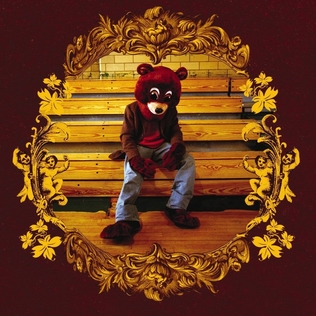
74: Kanye West, “The College Dropout”
Kanye West’s shenanigans aside, he has undoubtedly created iconic albums during his career. He has a strong sense of melody and song structure; every chorus and musical beat is at exactly the right spot. West’s collaborators are superb; Syleena Johnson and her jazzy vocals in the smooth “All Falls Down” elevate the song. The high point of the project is “Never Let Me Down” with J-ivy’s lyrics and delivery in the third verse being astonishingly poetic. On the other hand, Ludacris’ lazy hook in “Breathe In Breathe Out” leaves the listener feeling unfulfilled and wanting more.
West laid out a distinct style in his debut, with its minimal defects only adding to its character. While he built upon this in later works, it’s this album, one before the endless drama associated with him, that shows Kanye at his best. Not as a media personality, but as an artist.
56: Liz Phair, “Exile in Guyville”
Liz Phair started her career as an indie darling, and it’s not difficult to understand why. The almost lazy speech quality in her
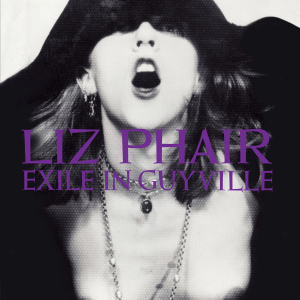
vocals (“Stratford-On-Guy” and “Never Said”) is surprisingly endearing, with “Never Said” being an undeniable earworm. To say that Phair’s songwriting was bold is an understatement; at times it feels like she’s trying to get people to talk about her. The lyrics of “Flower” are so overt that they border on satire, but sometimes this bravery adds to the song, like in the singalong “Fuck and Run” and the melancholy “Divorce Song.”
Perhaps the best aspect of “Exile in Guyville” is that, at its core, the album views life in the patriarchy. Its specific perspective is through the eyes of a young woman who happens to find herself mixed up in the male-dominated indie scene in early ’90s Chicago (referred to as “Guyville” in a song by Urge Overkill). And, since most industries are male-dominated, the experiences Phair shares in Exile in Guyville are incredibly universal and validating for most women. But Phair doesn’t do this in a pandering way, rather as your angry older sister venting about life.
Listening to this project and then Phair’s radio smash–and “sellout” song–“Why Can’t I” that came out a decade later, it’s easy to get why so many of her fans subsequently turned against her. “Exile and Guyville” shows that Phair thrives when she does her own thing.
20: Radiohead, “Kid”
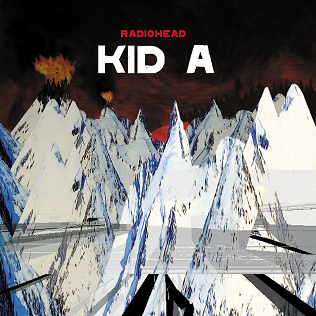
“Kid A” at 20 is the biggest atrocity of this list. This album is so dull; the songs drone on and on until the album is eventually over and you’re left wondering why you just wasted 47 minutes of your time. The only worthwhile tracks are “How to Disappear Completely” and “Motion Picture Soundtrack,” purely because the slow pace of the songs adds something that many of the other songs on the album lack: a soul. The titular “Kid A” is barely passable, sounding more like something someone would create in GarageBand to put themselves to sleep than a piece of music. “In Limbo” blends jazzy drums with a muddy aesthetic that leads to a rough, off putting track.
Radiohead clearly tried way too hard to distance themselves from their past and created a sloppy end result. This is Rolling Stone’s pretension at its finest.
16: The Clash, “London Calling”
Relative to the nihilism presented in the Sex Pistols’ discography, The Clash knew how to have fun. That doesn’t mean they
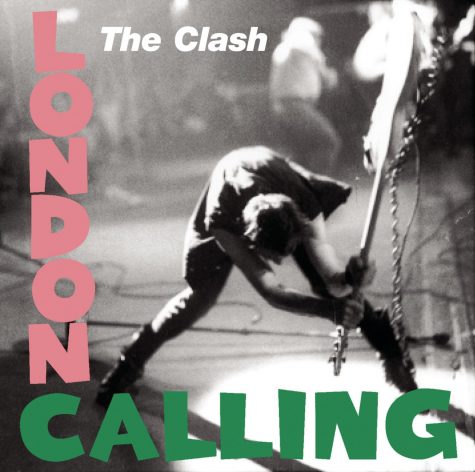
weren’t still rebellious, however. In classic British punk fashion, the song “London Calling” tells of the apocalypse by a corrupt government, but it does with such urgency that it sounds like a news report. “Hateful” sounds like if Elvis wanted to keep a squeaky-clean image by creating an anti-drug song. The band shines, however, with poppier tracks, as “Lost in the Supermarket”‘s nimble guitar riffs are nearly rivaled by must-listen “Train In Vain”‘s buoyancy.
The Clash managed to create an album that’s catchy, reggae-influenced and entertaining, all without being shunned from the punk scene. London Calling flipped the notion that political punk music should be all dingy shout-alongs on its head.
7: Fleetwood Mac, “Rumours”
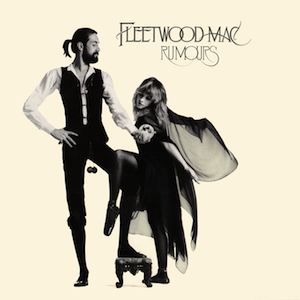
It’s easy to tell when an album has had a troubled making, with some telltale signs being sloppy presentation, rushed vocals and inconsistent melodies. However, though there was substantial inner turmoil during the making of “Rumours,” it is one of the rare cases where inner turmoil actually had a positive impact on the album, resulting in the creation of one of the best albums of all time.
Rumours begins with “Second Hand News,” where Lindsey Buckingham scats, which creates an infectious tune. “Dreams” is crisp, with Stevie Nicks giving her smoothest–yet most resentful–vocal performance to date. The brightest moment on the record is “Never Going Back Again,” with intricate fingerpicking giving the song a personal touch. “Go Your Own Way” is one of the most danceable songs about a breakup ever written, beginning with the famous declaration: “Loving you isn’t the right thing to do.” The culmination of all the unrest in the band is shown in the centerpiece “The Chain.” By utilizing word stress and locking the vocals into the kick drum, the band gives the chorus an almost desperate feeling.
Great albums don’t have to be overblown concept albums, or contain vague attempts to be arty with its lyrics. “Rumours” is great, but it’s anything but a concept album. And “Rumours” is anything but vague.
In Rolling Stone’s 2020 revision of the list, only 17% of its albums were made after 2000. In contrast, 31.4% of the albums were made in the 70s alone. So, did 70s musicians just make better music? Or does Rolling Stone simply not consider newer artists and their fans? While they have no obligation to appease this demographic–as I doubt this is their target audience–I feel that to be sustainable in the future they must put their fading newspaper down and spectacles away. Perhaps Rolling Stone should be more like the Examiner.
Leila Brady is a senior at Pelham Memorial High School. She is captain of the varsity field hockey team, and is a member of the varsity lacrosse and winter...












Dan Bollin • Jul 13, 2021 at 9:55 pm
Write more and share it proud, Leila!